
In today’s tech-enabled classrooms, education is no longer a one-way street where teachers deliver content and students passively absorb it. Modern pedagogy emphasizes collaborative learning, where students engage, discuss, and learn together. At the heart of this transformation is interactive panel technology, which fosters real-time collaboration, multi-user engagement, and support for diverse learning needs. This article explores how interactive panels are fostering collaborative learning environments, encouraging teamwork, and enhancing accessibility for all learners.
1. Group Projects and Peer Interaction
Interactive panels transform traditional group projects into dynamic, tech-enabled learning experiences. With the ability to split the panel into multiple interactive zones, students can work in groups on the same screen without interference. Each group member can contribute simultaneously—writing, dragging, highlighting, or annotating—making the collaboration hands-on and seamless.
Benefits:
Real-time collaboration
Visual and tactile interaction
Encourages brainstorming and team-based problem solving
Promotes peer-to-peer teaching
Example: In a history class, one group can annotate a timeline, another can work on mapping historical events, and a third group can compile key facts—all on the same panel at once.
2. Multi-User Participation Features
One of the standout features of modern interactive flat panels is multi-touch capability, which allows multiple students to use the screen at the same time. This fosters a sense of inclusion and participation during group discussions, reviews, and class activities.
Whether it’s solving math problems side-by-side or participating in team-based quizzes, multi-user participation breaks the one-student-at-a-time barrier and creates a shared learning space where everyone has a voice.
Benefits:
Encourages inclusive dialogue
Reduces classroom wait times
Promotes equitable participation
Enhances social interaction skills
3. Supporting Diverse Learning Needs
a. Accessibility Tools and Language Support
Inclusive education is more than a goal—it’s a necessity. Interactive panels support accessibility tools that ensure every student, regardless of ability or background, can fully engage with the content.
Features such as:
Text-to-speech (TTS)
Adjustable font sizes and high-contrast themes
Closed captions for multimedia
Multilingual interface and language translation tools
These tools empower students with visual impairments, learning disabilities, or limited language proficiency to participate equally.
Benefits:
Makes learning accessible for all
Supports special education needs
Bridges language barriers in diverse classrooms
Enhances independent learning
b. Personalized Learning Paths
Many interactive panels integrate with AI-powered educational platforms that offer real-time analytics and adaptive learning. These platforms track student progress and adjust content difficulty or type based on performance, helping teachers create personalized learning experiences.
This allows students to:
Learn at their own pace
Access remedial or advanced content tailored to their skill level
Receive automated feedback and suggested practice
Benefits:
Enables differentiated instruction
Promotes self-paced learning
Increases student ownership of learning
Enhances engagement for both struggling and advanced learners
Interactive panels do more than just digitize classroom instruction—they actively transform the learning environment into a collaborative, inclusive, and personalized space. From enabling group projects and peer interaction to supporting multi-user functionality and diverse learning needs, interactive panels are powerful tools for fostering engagement and equity in education.
As schools embrace blended and tech-integrated learning, leveraging interactive panels is not just about staying current—it's about building a collaborative, inclusive, and future-ready classroom.
Your email address will not be published. Required fields are marked *
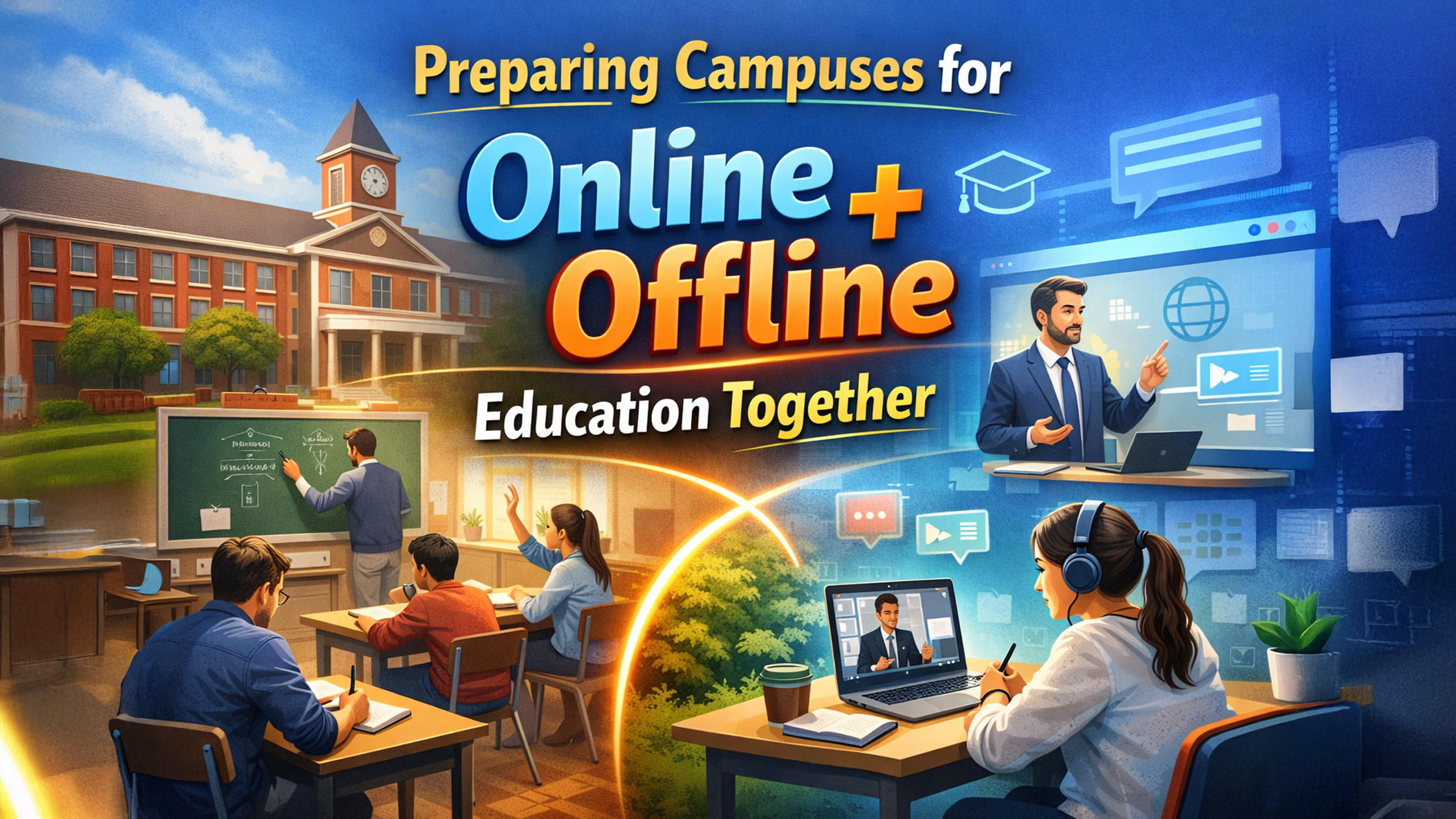
By Inhype • February 11, 2026
Indian education is evolving rapidly. Schools, colleges, coaching centres, universities, and training institutes are no longer choosing between online
Read More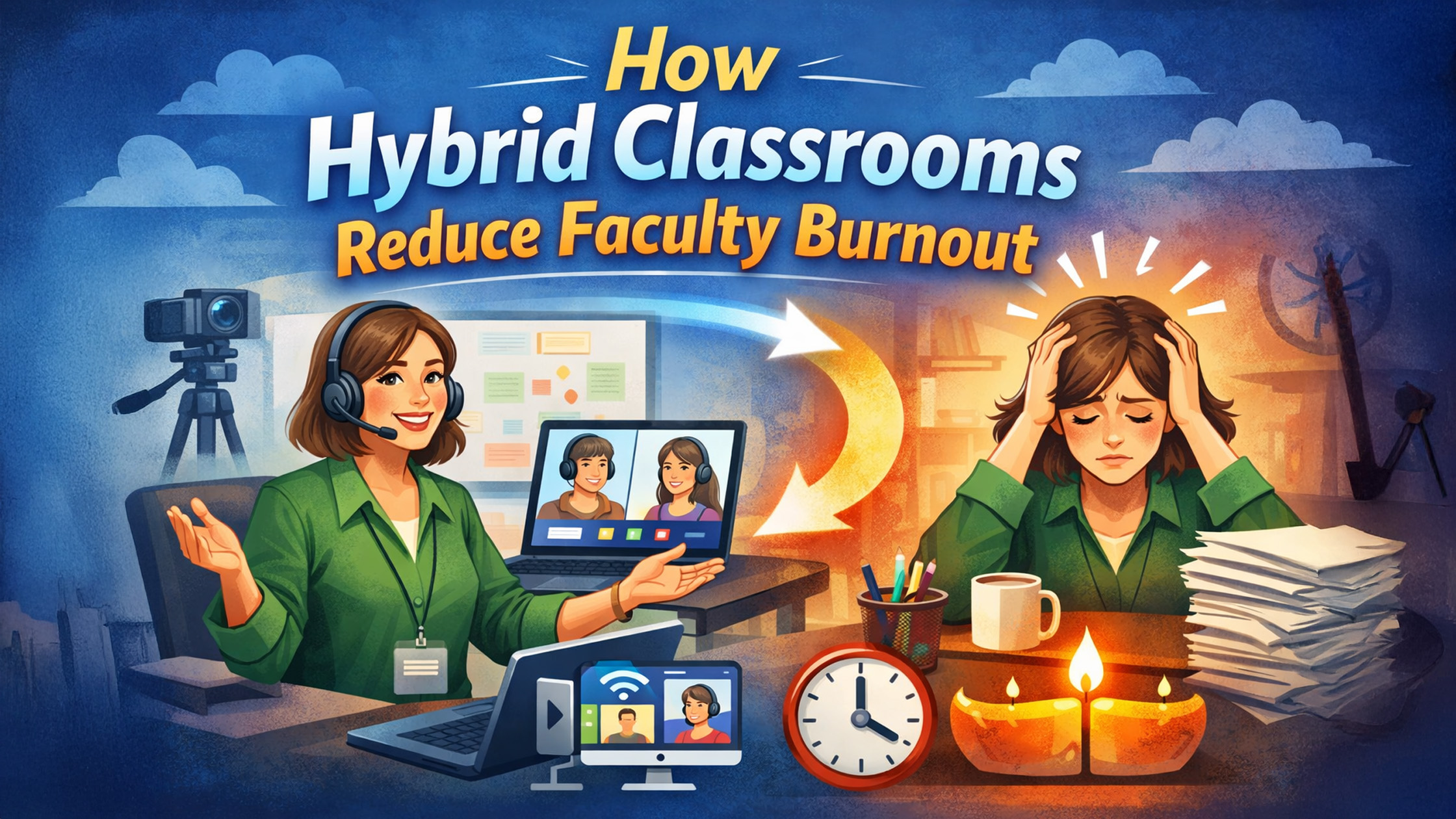
By Inhype • February 11, 2026
Across India, teachers are facing rising workloads, screen fatigue, classroom management stress, and pressure to deliver consistent results both onlin
Read More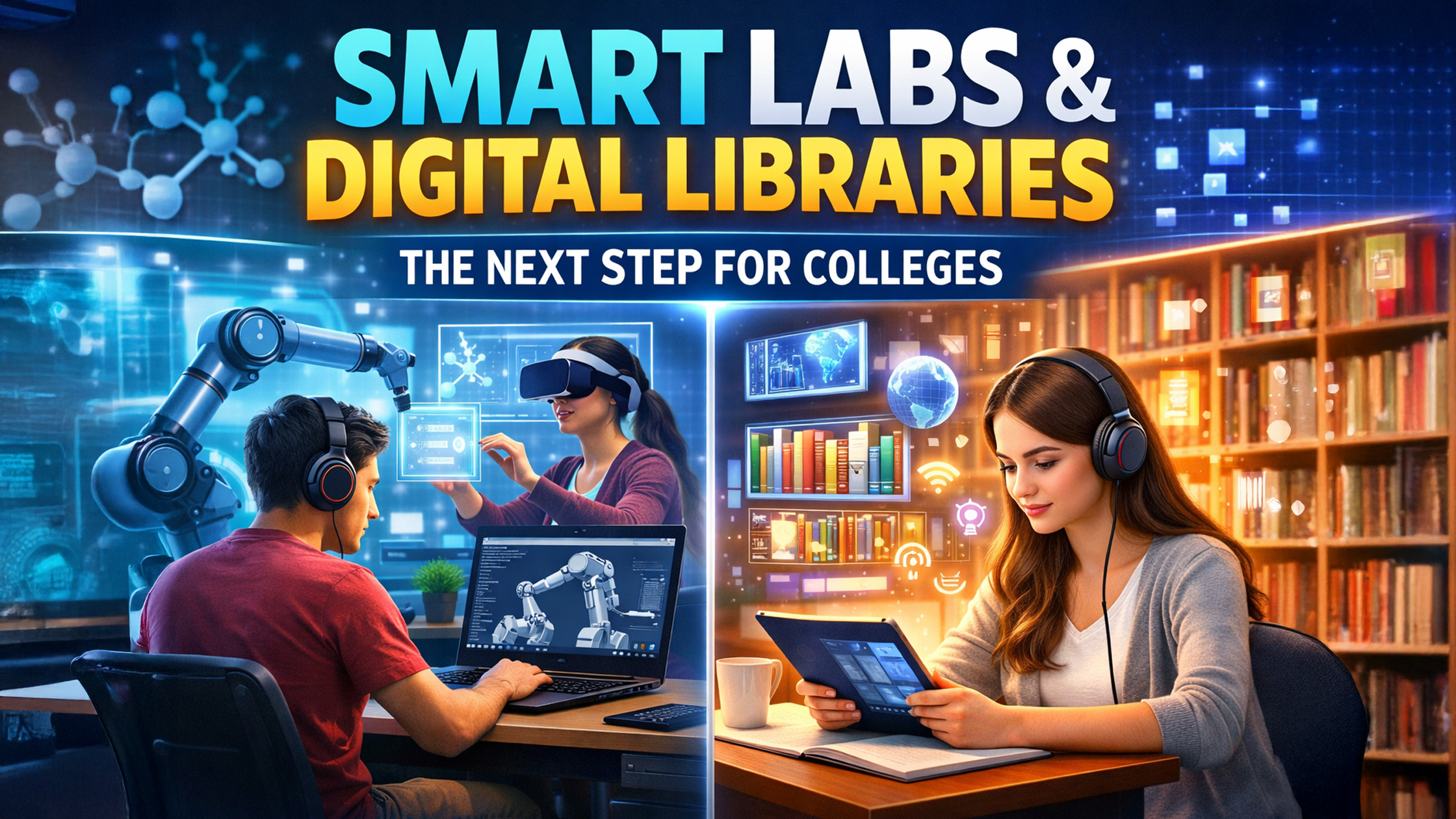
By Inhype • February 11, 2026
Indian colleges are rapidly shifting toward smart classrooms, smart labs, and digital libraries to meet the demands of hybrid learning, NEP 2020, and
Read More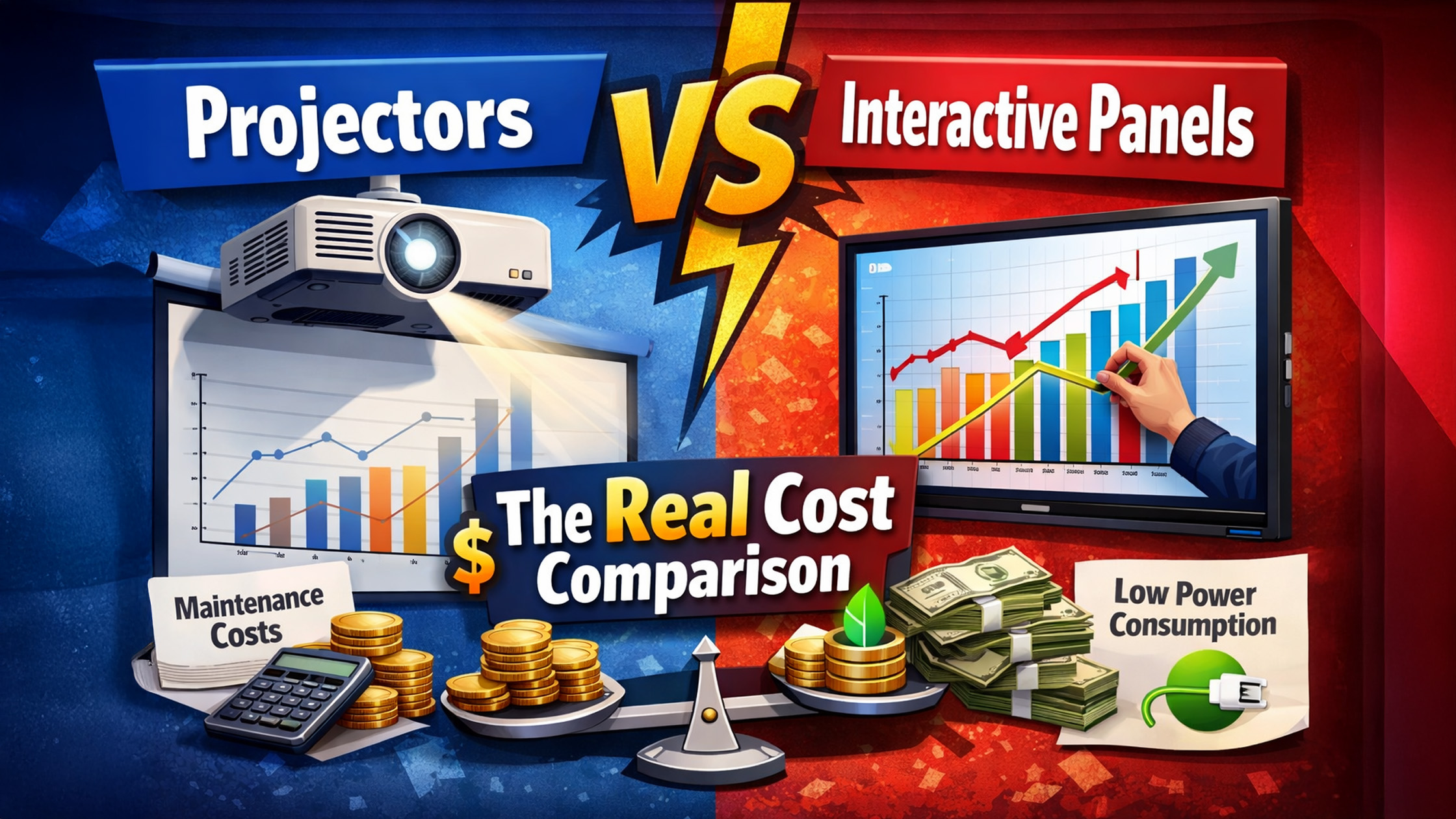
By Inhype • February 11, 2026
With the rapid growth of smart classrooms, hybrid learning, and digital collaboration in India, schools, colleges, coaching centres, and corporates ar
Read More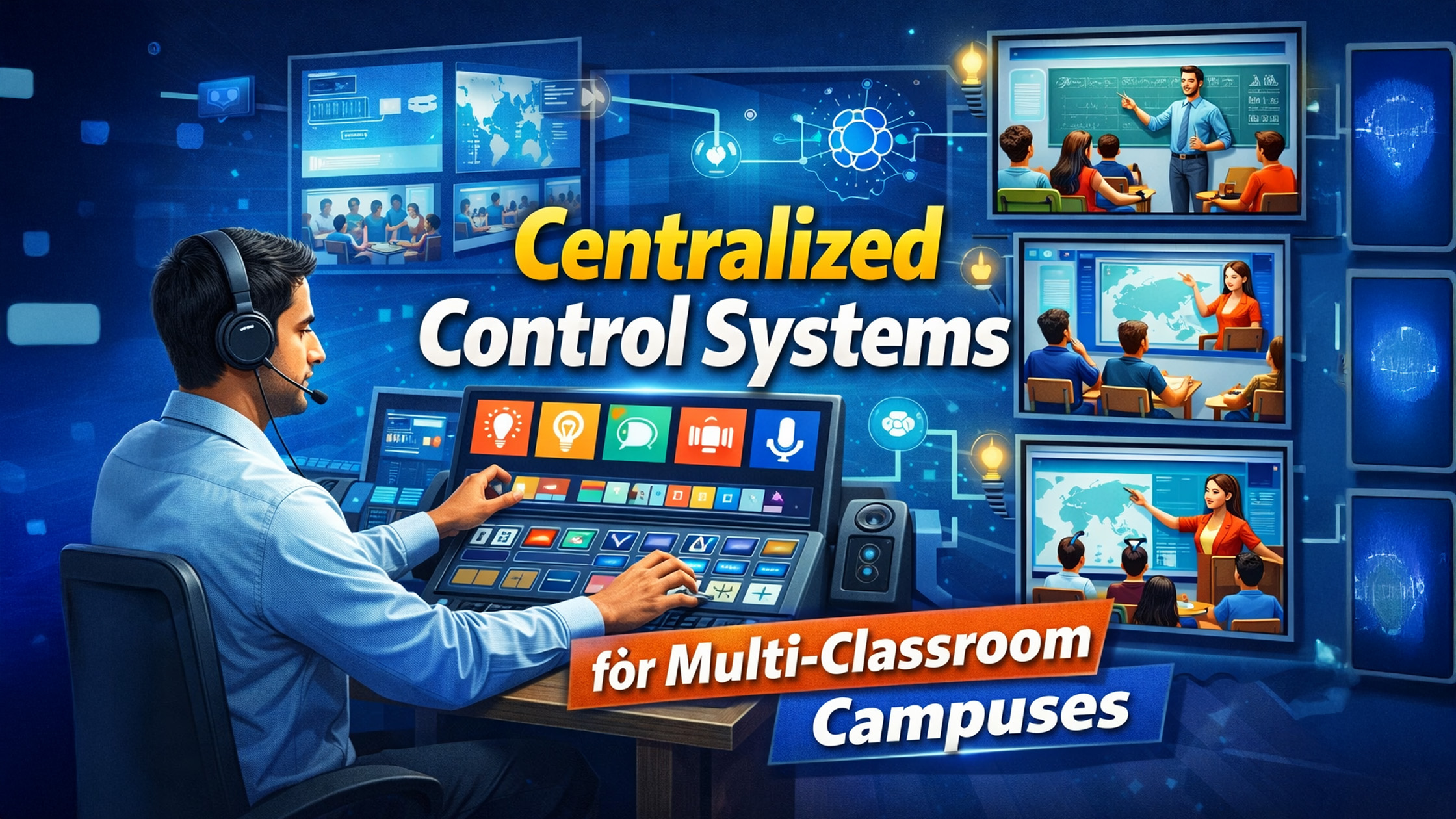
By Inhype • February 11, 2026
As smart classrooms in India rapidly expand, managing multiple digital boards, cameras, audio systems, and interactive panels across a large campus ha
Read More
No comments yet. Be the first to comment!